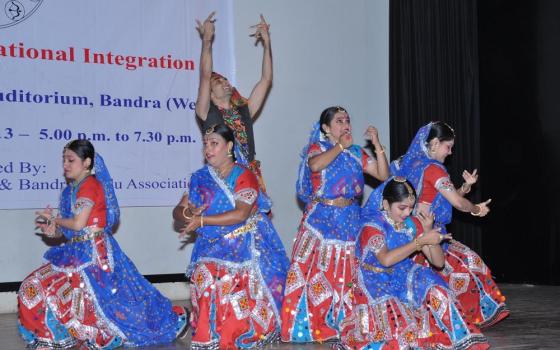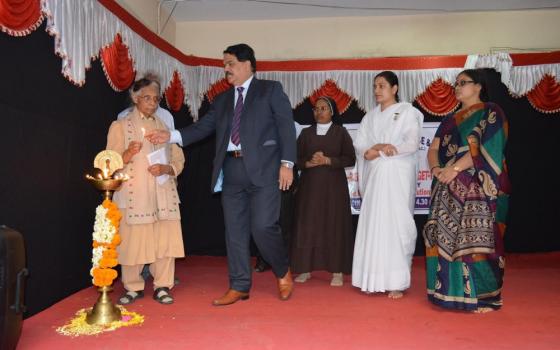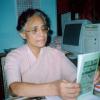For Christians in India and other parts of Asia, dialogue with people of other religions is not a debate or attempt to persuade the other person. Nor is it a forum to compare and contrast one's religion with another.
Instead, it is a platform to learn from one another's religious traditions and values, insights and experiences, in a process of sharing. Genuine dialogue fosters communication and makes each other's faith intelligible. It enhances growth in mutual respect and love.
In a multi-religious country like India — with its varied traditions, rituals, places of worship, pilgrim centers, sages and saints, sacred rivers and holy mountains — we cannot but be astonished by the religiosity and spirituality of our people.
Living and working side by side, we are in a privileged position to live out the inter-religious dialogue envisaged by Vatican II and recommended by Popes Paul VI, John Paul II and Francis, as well as the Federation of Asian Bishops' Conference, Catholic Bishops' Conference of India and numerous religious leaders.
Undoubtedly for Christians in India, dialogue is of paramount importance. Awareness of living a "dialogue of life" in a religiously pluralistic society motivates us to promote unity in diversity, and build solidarity and harmony, thus contributing our share to national integration and world peace.
The negative role of religions as witnessed in contemporary India does not negate the positive role religions can play in building a better nation and a better world. Examples abound in this regard. The interreligious movement celebrates unity in diversity and promotes harmony among people with differing beliefs, cultural backgrounds, languages, age groups, socioeconomic status and political affiliations. My own experience in interreligious ministry has deepened my conviction that followers of other religions are our partners in dialogue and in our common search for truth.
I ventured into interreligious movement after violence hit the western Indian city of Mumbai (then known as Bombay) during December 1992 and January 1993. The riots claimed about 900 lives. The violence was Muslim retaliation against the demolition of an ancient mosque in the northern Indian city of Ayodhya by rightwing Hindu groups.
In the aftermath of the riots, I visited people of all faiths in our immediate neighborhood for their response to a proposed interfaith get-together. From its inception that year, the gathering has attracted people of all religions and walks of life in the area.
Their enthusiasm, good will and support, both in organizing the meeting annually and in shouldering responsibilities connected with the program, indicate that interfaith dialogue and partnership is a sign of the times, a movement of the spirit that calls for ongoing reflection and committed action. What began as an "All-Religion Prayer and Get-Together" with only 100 people has grown to a crowd of 500 youth and adults. The event is held in and around Bandra in collaboration with my community, (the Daughters of St. Paul), Bandra Hindu Association, Bombay Urban Industrial League for Development (an NGO), Anjuman-I-Islam's Girls High School and Junior College, and Brahma Kumaris (a Hindu women congregation).
The program begins with a traditional Indian dance invoking God's blessings and the lighting of the lamp signifying that God's light dispels darkness and enlightens our minds. This is followed by a short prayer service with readings from religious scriptures and prayers for the country and its people.
The second part comprises a panel discussion or an innovative presentation based on the theme selected for the year, keeping in mind its contemporary relevance. Examples of themes are: "Religious Ethics and its Distortion," "Role of Religions in Combating Terrorism" and "Displacement of the Poor: What Does Religion Say?"
Though we struggle with financial difficulties and lack of personnel for the event, in the process of journeying together we have learned the skill of giving and receiving, as well as the art of participatory leadership. As Christians, it is time that we shed our superiority complex inherited from colonial Christianity and assume the attitude of Jesus who appreciated all people, Jews and non-Jews alike.
One of the reasons for the growth of religious sectarianism in India today is religious fundamentalism with its intolerance, superiority complex, fanaticism and narrow mindedness, resulting in the misuse of religion in public life. Fundamentalists' insistence on the literal, fanatical and exclusive use of scriptures is dangerous as seen in caste- and gender-based discrimination.
Regarding Christianity, it is worth highlighting the insightful comments of renowned Jesuit scholar, Fr. George Soares-Prabhu, on the rigid understanding of mission. He has emphasized that the aggressive mission of the colonial period and mission exclusively understood as "church growth" based on the great commission (Matthew 28:16-20), has to be balanced and corrected by mission as witness, based on the text of Matthew 5:13-16.
Another example of religious fundamentalism can be noticed in the attitude of the Vatican Congregation for Doctrine of Faith that summoned Fr. Michael Amaladoss, an outstanding Indian Jesuit theologian, to Rome "for a series of 'conversations'" on his writing: The Asian Jesus.
Criticizing the Doctrine of Faith position, Jesuit Fr. Myron Pereira, in his thought-provoking article "Locking horns over the 'The Asian Jesus'" (2014 UCANews), observes that CDF has failed to comprehend Amaladoss' presentation of Jesus in Indian images such as, "the Sage, Guru (teacher), Satyagrahi (seeker of truth), Avatar (incarnation) and the Dancer." These images of Jesus are relevant to Indians and other Asians who live in a religiously pluralistic society.
Fundamentalists have the tendency to manipulate people's religious sentiments for their own selfish motives. Ashis Nandy, director of the Centre for the Study of Developing Societies, in a 1993 article on "Fundamentalism," points to "the pathetic efforts of political formations such as the Bharatiya Janata Party and the Viswa Hindu Parishad to sell their platform as a more genuine form of nationalism than as true Hinduism."
In conclusion, India's multicultural, multiethnic, multi-religious pluralism and diversity must be respected and celebrated. This is essential for human dignity, stability and harmony, leading to inclusive development. To use the recent powerful expression of Indian President Pranab Mukherjee, "India's 'core civilizational values' of tolerance, celebrating diversity and plurality are intrinsic to its survival."
Peaceful coexistence is the only solution in a disarrayed world. Every religion has a divine message of love, unity, justice and forgiveness, values worthy of emulation.
[Pauline Chakkalakkal holds a Ph.D. in biblical theology and is a member of the Daughters of St Paul. She lives in Mumbai, western India.]



